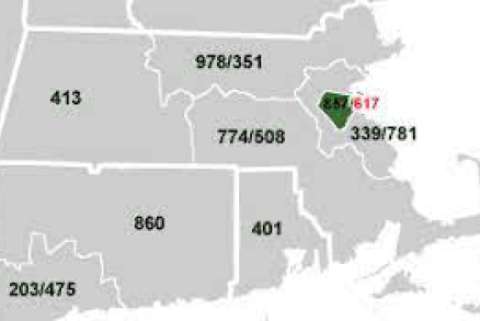In the historic city of Boston, Massachusetts, where history meets innovation, residents and businesses within the 617 area code grapple with the persistent challenge of robocalls and spam calls. This article explores the implications of the Telephone Consumer Protection Act (TCPA) within the context of robocalls and spam calls in the 617 area code, shedding light on the multifaceted efforts to address these disruptive communications.
Boston, known for its rich cultural heritage, prestigious universities, and technological advancements, is not immune to the nationwide issue of unwanted automated communications. The TCPA, enacted in 1991, emerges as a critical legal tool to mitigate the nuisance and invasion of privacy caused by robocalls. It establishes guidelines for businesses, telemarketers, and organizations, prescribing requirements for prior consent, maintaining "Do Not Call" lists, and restricting the use of automatic dialing systems.
Residents and businesses in the 617 area code can leverage the TCPA's protections to alleviate the impact of robocalls. Compliance involves obtaining explicit consent before initiating robocalls, promptly respecting "Do Not Call" requests, and ensuring secure practices to protect consumer information during communications.
Despite the safeguards provided by the TCPA, the battle against robocalls remains dynamic. The Federal Communications Commission (FCC), tasked with overseeing and implementing the TCPA, acknowledges the need for continual adaptation to counter the evolving tactics employed by robocallers. Legislative measures, such as the TRACED Act signed into law in 2019, aim to empower the FCC with enhanced tools to combat illegal robocalls effectively.
Technological solutions also play a crucial role in empowering consumers to combat robocalls. Mobile carriers and third-party app developers actively work on implementing advanced call-blocking features, enhanced caller authentication, and improved spam detection algorithms. These innovations aim to provide residents in the 617 area code with robust tools to filter and block unwanted automated communications effectively.
Despite these protective measures, the battle against robocalls extends beyond legal and technological realms. Community awareness campaigns can empower Boston's residents with knowledge about recognizing potential scams, reporting illegal communications, and understanding their rights under the TCPA. Boston's sense of community engagement and proactive spirit can fuel these educational endeavors, creating a more informed and resilient population.
As the bustling city of Boston navigates the intersection of history, academia, and technological innovation, the challenge of robocalls poses a unique set of obstacles for residents and businesses within the 617 area code. The TCPA serves as a beacon of protection in this landscape, offering legal avenues to mitigate the intrusion of unwanted automated communications. However, the multifaceted nature of the issue necessitates a comprehensive approach involving legal adherence, technological advancements, and community engagement.
Boston's historical significance, coupled with its status as a hub for cutting-edge research and development, places the 617 area code at the forefront of addressing challenges posed by robocalls. The TCPA's role in establishing guidelines for ethical communication practices is not just a legal obligation for businesses within the area code; it is an opportunity to uphold the city's commitment to privacy and consumer rights.
Compliance with the TCPA involves businesses obtaining explicit consent before initiating robocalls, promptly respecting "Do Not Call" requests, and employing secure practices to protect consumer information during communications. Boston's residents, known for their education and tech-savvy awareness, can actively contribute to this compliance by staying informed about their rights and holding businesses accountable for ethical communication practices.
Despite the regulatory framework provided by the TCPA, the battle against robocalls is a dynamic one, with robocallers adapting tactics to circumvent restrictions. The FCC's recognition of the need for continuous adaptation is crucial, and legislative measures such as the TRACED Act underscore the commitment to empowering regulatory bodies with the tools necessary to combat these evolving challenges effectively.
Technological innovation remains a cornerstone in the fight against robocalls. Boston's reputation as a technological hub positions the 617 area code to embrace and champion these innovations. Mobile carriers and third-party app developers continually refine call-blocking features, enhance caller authentication protocols, and improve spam detection algorithms. These advancements empower Boston's residents with robust tools to filter and block unwanted automated communications effectively, contributing to a more secure and personalized telecommunication experience.
Conclusion
In conclusion, the fight against robocalls in the 617 area code is a multifaceted challenge that requires collaboration, education, and technological innovation. Boston's unique blend of historical significance and technological prowess positions the 617 area code to not only withstand the onslaught of unwanted automated communications but also to actively shape a future where residents enjoy a more secure and personalized telecommunication experience. Through ongoing efforts and a commitment to collective solutions, Boston's 617 area code can pave the way for a nationwide shift towards a telecommunications environment free from the disruptions caused by incessant robocalls.



